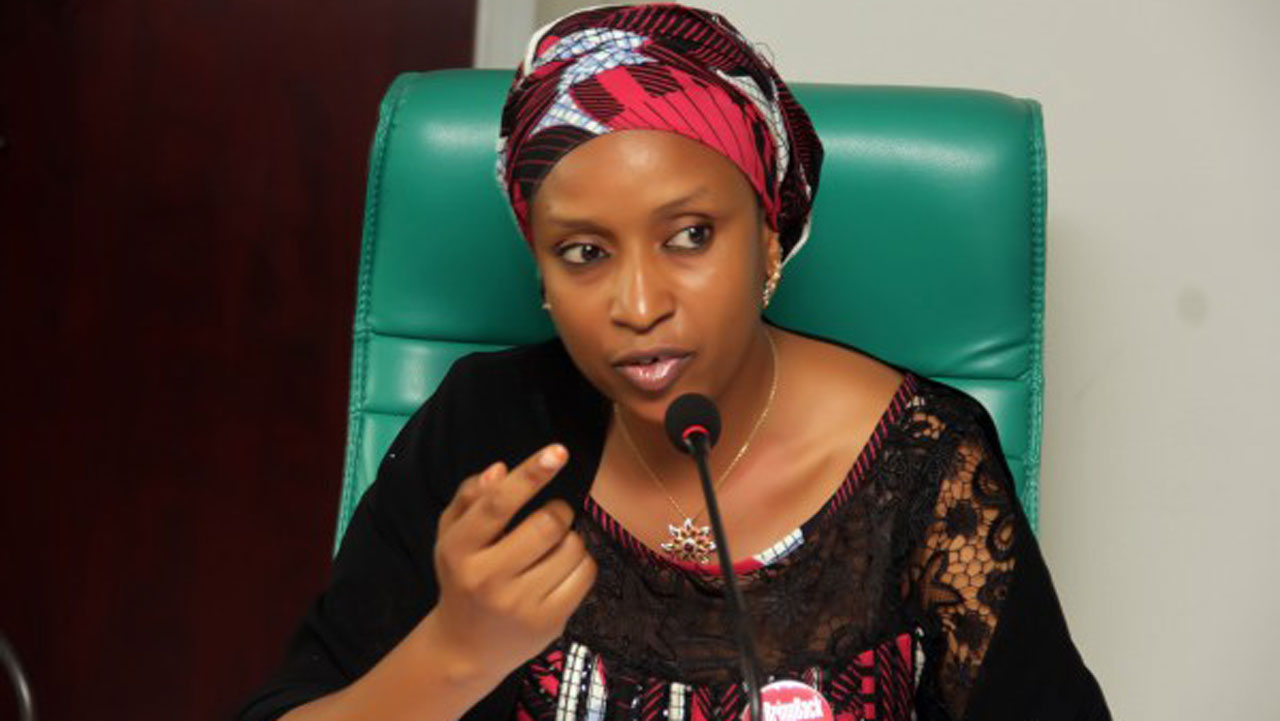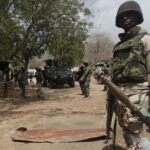The federal government had in 2019 taken the bull by the horn by shutting its land borders with other West Africa countries over what it termed the rising cases of insecurity in the country.
The NPA management said at the time that it was part of government’s efforts to stem cross-border banditry and smuggling of small arms into Nigeria by criminal gangs.
The decision to close the borders was a fall-out of President Muhammadu Buhari’s directive to the military to take more decisive steps towards restoring peace to the country, particularly in states troubled by bandits . President Buhari ordered them not to spare those behind the frequent killing, maiming and extortion of innocent citizens.
SPONSOR ADThe border-closure move, tagged ‘Operation Swift Response’ is being coordinated by the Office of the National Security Adviser (ONSA).
Its main focus was, according to the NSA, forestalling activities of bandits, illegal migration, influx of prohibited items and boosting the security of communities considered to be at the fringes of Nigeria and its neighbours.
All unmanned areas along the large expanse of lands in border communities were manned with heavy deployment from both the military, and para-military service, with the Nigeria Customs Service as the lead agency.
They are to jointly share information, and coordinate exercises and back-up, among others.
Following the directive, the Chief of Naval Staff, Ibok Ete Ekwe-Ibas, directed the Flag Officer Commanding (FOC), Western Naval Command, Rear Admiral Oladele Daji, to clear all illegal structures built along the Nigerian National Petroleum Corporation (NNPC) pipeline right of way.
With this directive, the Commander of the Nigerian Navy Ship (NNS), BEECROFT, Commodore Ibrahim Shettima, deployed troops to the area. Several thousands of jerry cans filled with petrol were recovered.
The operation, which is still ongoing, discovered that most of the inhabitants of the numerous islands were foreign nationals aiding the activities of smugglers of petroleum products and arms.
Similarly, the Nigerian Ports Authority (NPA) management discovered a huge gap in the security architecture along the Lagos anchorage.
An impeccable source told our correspondent that from a closer look, the NPA discovered that the federal government was being short-changed in terms of revenue by a security firm granted the right of providing security for merchant ships coming into the country.
The source said that the firm was collecting about $133.24 million from merchant vessels for the usage of the Secure Anchorage Area (SAA). The source alled the firm was paying about 10 per cent of the total sum to the federal government and pocketing a sizable chunk of the money.
This was despite massive security deployment by the Nigerian Navy and Nigerian Maritime Administration and Safety Agency (NIMASA).
Stakeholders believed that this is part of the reason why vessels calling on Nigerian ports, especially those calling at the Lagos, Warri and Port Harcourt ports were made to pay exorbitant fees not remitted to the federal government.
The stakeholders said that ships that were supposed to anchor in designated areas at the port were forced to move to an area known as Secured Anchorage Area (SAA), where they were made to pay high charges or face threats of insecurity deliberate orchestrated to make it look like only vessels at the SAA were safe.
The source said, “Government recently announced that it awarded a maritime security contract worth $195m (about N60 billion) then to an Israeli company, HLSI Security Systems and Technologies. The contract involves the deployment of unmanned area vehicles, helicopters, fast patrol boats and others. That is not all.
“To further improve security on the country’s territorial waters, NIMASA recently launched its Command, Control Computer Communication and Information (C41) operation centre.
“The C4I system, also called the Deep Blue Project, is expected to eliminate, or, at least, reduce the scourge of piracy and other criminality in the Gulf of Guinea, particularly in the Nigerian maritime domain, and totally eliminate the incidental insurance premium and other country-specific charges on Nigeria-bound cargo”
The NPA, which openly expressed concern as to the high cost of doing business, coupled with the state of insecurity, notified the Nigerian Navy of its decision to dismantle the SAA, operated on behalf of the Navy by a private company, OMS Limited.
It insisted that the security of the country’s waterways was the statutory responsibility of the NIMASA, Marine Police and Nigerian Navy, which must all ensure a safe and secure Nigeria’s territorial waters.
The move by the NPA was hailed by stakeholders in the maritime sector, who claimed the initiative was timely to stave off a financial burden that the consulting company had brought on them.
But some miscreants, who were used to creating a state of insecurity at the Lagos Anchorage, staged a protest against the Managing Director of NPA, Hadiza Bala Usman, after appearing before the Senate.
The Nigerian Association of Master Mariners (NAMM) has also thrown its weight behind the action of the NPA, saying that the SAA was against international law and practices.
Reacting to claims that the Authority intended to hand over SAA to cronies, Bala Usman said the NPA believed that there was no need for a privately managed SAA
Usman said that the federal government, through the NN, NIMASA and NPA, were able to secure the waterways at zero cost to the shipowner.
She said, “We need to consciously reduce the cost of doing business in Nigeria and such charges are what translate into an additional cost of calling in our ports. Moreso with the ongoing deployment of the maritime security project being implemented by NIMASA costing the government billions of US dollars why do we need anything called SAA run by a private company with a cost to vessel owners? The NIMASA project is to secure all our waterways, which include any location vessels choose to anchor.”
OMS’ SAA was dismantled over increasing cases of insecurity – NPA

 Join Daily Trust WhatsApp Community For Quick Access To News and Happenings Around You.
Join Daily Trust WhatsApp Community For Quick Access To News and Happenings Around You.


